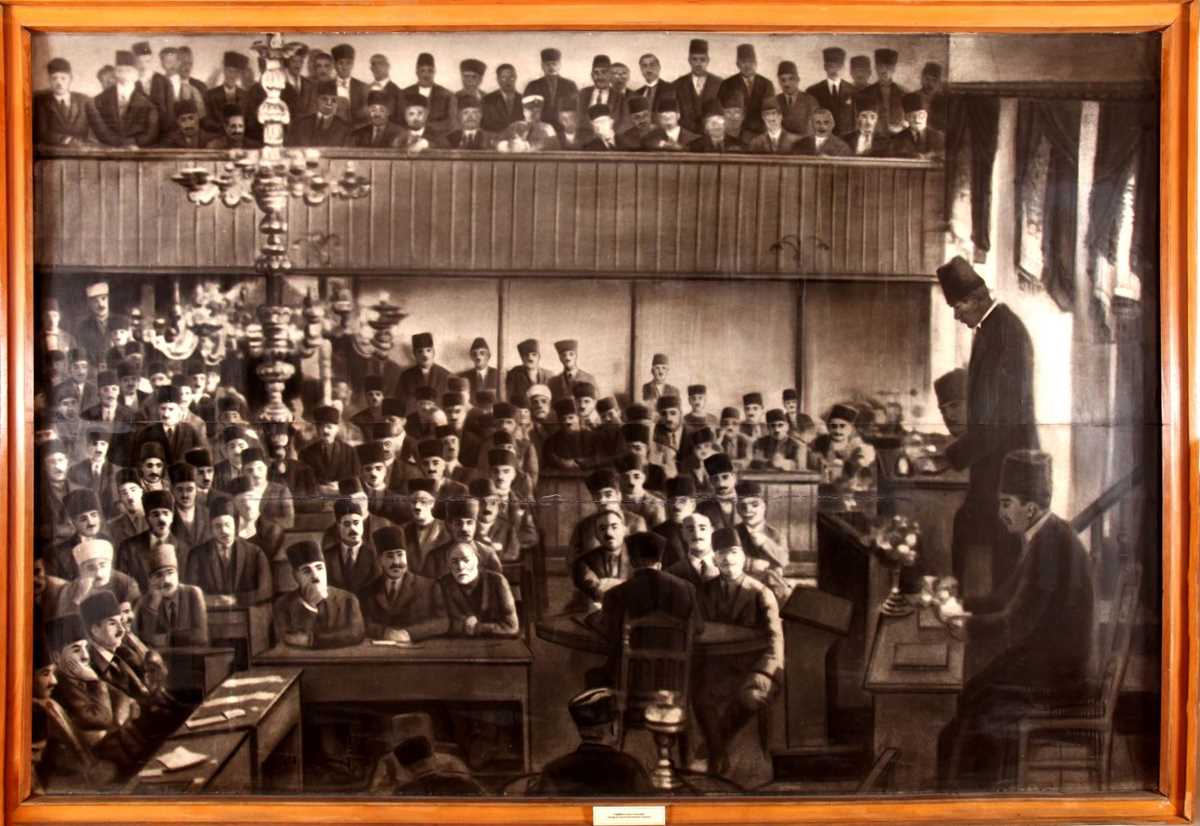
Introduction
This year, together with the establishment of the Republic of Turkey, the centennial of the signing of the Lausanne Peace Treaty on July 24, 1923, that laid the groundwork for the foundation of the Republic will also be celebrated. In our various AVİM articles penned in the previous years, we have drawn attention to the importance of the Lausanne Peace Treaty for the Republic of Türkiye and Turkish history.[1] As mentioned in the articles above, the Lausanne Peace Treaty was a significant turning point in Turkish history. The Treaty revealed that the Nationalist Movement led by Mustafa Kemal had the power to abolish the Treaty of Sevres, which the defeated Empire had to sign, and to negotiate a new treaty on its own terms with the victorious Allies. The Treaty demonstrated the feat of establishing an independent and sovereign Turkish state from a collapsed empire. It enabled the allies to recognize this independent and sovereign nation-state and included Turkey as an equal partner in the family of sovereign nations. Mustafa Kemal Atatürk, in his historical speech known as "Nutuk" (The Great Speech) delivered at Ankara in 1927 before the deputies and the representatives of the Republican Party (of which he was the founder and head) qualified the Lausanne Peace Treaty as follows:
"The Treaty of Lausanne is the document that reveals in a decisive manner the failure of a vast plot which had been hatching for centuries against the Turkish nation, a plot which they believed they had carried to success through the Sevres Treaty. It is a political victory which was not matched in the whole of Ottoman Empire."[2]
One must underline that the Lausanne Peace Treaty represents the culmination of a lengthy struggle, beginning with the Declaration of Amasya on June 21-22, 1919, which incorporated Mustafa Kemal's views on the necessity of ensuring Turkey's sovereignty and independence. Nationalist Congresses subsequently endorsed these views in Sivas and Erzurum as the National Pact of Türkiye. There are two basic and essential concepts in this long and challenging struggle: sovereignty and independence. One must further underline that these two concepts form the foundational principles of the Republic of Türkiye.
The uniqueness of the Lausanne Peace Treaty
Six main peace treaties ended the First World War. Versailles Treaty of June 28, 1919, placed Germany under strict restrictions, forced her to pay heavy reparations, and Germany lost considerable territory and population. Historians often consider this Treaty the critical underlying cause of the Second World War. The Saint-Germain-en-Laye Treaty of September 10, 1919, dismantled the Austro-Hungarian Empire, established Austria Hungary and Czechoslovakia, and merged the southern Slav states to form Yugoslavia. This Treaty has also become a source of future tensions. The Treaty banned Austria from forming a union with Germany. Yugoslavia was violently dissolved in the 1990s, creating one of the most severe human sufferings in late European history. Treaty of Neuilly of November 7, 1919, signed with Bulgaria, forced this country to cede land to the newly formed Yugoslavia, Romania, and Greece, leaving Bulgaria without direct access to the Aegean Sea. As a result, Bulgaria became a revisionist state in the 1930s in the Balkans. As a result of the Treaty of Trianon of June 4, 1920, with Hungary, at least three million Hungarians found themselves outside of their country.[3] In contrast to these treaties, as competently expressed by historian Zara Steiner, "The Treaty of Lausanne, the last of the peace treaties, proved to be the most successful and durable of all the post-war settlements."[4]
It should be noted that "[At] the end of World War One, the victorious Allies dictated punitive peace terms to the three great empires they had defeated. In 1920, the Ottoman Empire signed the Treaty of Sèvres. The events of two short years, however, turned the tables, allowing the Turks to tear up Sèvres and negotiate a very different peace."[5] In a sense, Türkiye and the Turks had the last word at the end of the First World War. The following included in the preamble of the Lausanne Peace Treaty:
"Being united in the desire to bring to a final close the state of war which has existed in the East since 1914, Being anxious to re-establish the relations of friends and commerce which are essential to the mutual well-being of their respective peoples, And considering that these relations must be based on respect for the independence and sovereignty of States, Have decided to conclude a Treaty for this purpose..."[6] (Emphasis added by the author)
It is a fact that the Lausanne Peace Treaty has remained valid even after a century has passed. It continues as it is despite the existence of problems that sometimes turn into bloody conflicts in the Middle East region. The Treaty is considered the "birth certificate" of the Republic of Türkiye. Despite the existence of certain groups that describe the Turkish people's overwhelming support of the Lausanne Peace Treaty as support for the "official interpretation of a historical event" and belittle it as a treaty that imprisons Turkey in Anatolia, as some Islamist writers do,[7] Turkish people still strongly support the Treaty.
The questioning of various aspects and provisions of the Lausanne Peace Treaty by academic platforms recently established outside of Türkiye on the eve of the centennial of the Treaty is a attention grabbing development in bringing this historical Treaty to the attention of the world public opinion. The noteworthy aspect of this unique development is that these academic platforms were mainly formed in Britain, the winner of the First World War, with the financial support of Armenian foundations and with the help of the academic circles of Greece, which attempted to invade Turkish lands as the vassal state of Britain after the First World War.
One of these platforms, "The Lausanne Project," makes the following claim regarding the perception of the Treaty in Türkiye and, at the same time assertively carries Wilsonian rhetoric of 'self-determination interestingly to the present time:
"Under the Treaty, the Nationalist regime received full formal recognition, drawing a line under years in which 'Angora' and 'İstanbul' had been employed as shorthand, to distinguish the rival 'Ottoman' government (which had signed Sèvres) and the 'Nationalist' government. Turkey received no recompense for war damages, but nor did she have to pay any reparations herself. Her share of the Ottoman debt was dramatically reduced and attempts by the 'Allied and Associated Powers' to secure an 'Armenian home' within Turkey were abandoned. It is not surprising that, until quite recently, the Treaty was widely celebrated within Turkey as their nation's 'birth certificate.' (Emphasis added by the author)
For the Armenians, Kurds, Arabs, and other communities who had invested so much in Wilsonian rhetoric of 'self-determination' it was something very different; Ara Toranian has said of the Treaty that it was "' he crime of the century that came after the crime of the century, only excepting the Shoah'. The scope of the 'unmixing' ordained by Lausanne (as well as its perceived 'success' made it a point of reference in post-WW2 peace settlements, as well as the partition of India. Over the past two decades this normalisation of 'unmixing' as a peace-making tool has been radically reinterpreted and is now viewed by many scholars as 'ethnic cleansing.' "[8]
Impressum of "The Lausanne Project" and its declared activities
Per its website declaration, "the Lausanne Project" was "conceived in 2017, partly in reaction to the raft of scholarly projects then in preparation for the centenary of the Paris peace conference of 1919. The convenors were struck by the contrast between these initiatives and the dearth of scholarly attention paid to Lausanne outside Turkey"[9] and made "possible by a grant from Gingko,[10] with additional support from the Calouste Gulbenkian Foundation."[11] Utrecht University and the University of Southampton are cited among the partners.
According to its further website information, the Lausanne Project "encouraged to find other scholars exploring the role of NGOs, the press, diaspora groups and other non-state actors in reshaping the relationship between "East" and "West" in the interwar period, organized a workshop on Lausanne, to prepare a co-edited book of centenary essays that the Gingko Library published in April 2023."[12]. It also declared that a second conference would be held in Thessaloniki in November 2023.[13]
There is also information on the website that a book entitled "They all made peace - what's peace? The 1923 Treaty of Lausanne and the new imperial order"[14] was published recently. The book in question is introduced on the website as follows:
"They All Made Peace is the first English-language publication to consider the Treaty and its legacy a century on. A stellar group of historians present a contrapuntal, multi-perspective analysis of 1923. Chapters consider British, Turkish and Soviet designs in the post-Ottoman world, situate the population exchanges relative to earlier and subsequent peacemaking efforts, and discuss the economic factors behind the reallocation of Ottoman debt as well as the management of refugee flows. Further chapters examine the 'absent presences', Kurdish, Arab, Iranian, Armenian, and other communities refused formal accreditation at Lausanne, but nonetheless forced to live with the consequences, which are still emerging, one hundred years on."[15]
Abruptly Emerged Self-Determination Request
While the "multi-perspective" academic studies mentioned above are underway, coinciding with the centennial of the Lausanne Peace Treaty, a Turkish media source recently published a news item containing an intriguing claim regarding self-determination. The news item titled "Kurdish Diaspora Started Lausanne Debate" is presented below without comment:
"In the DIAKURD statement, which states that an application was made to the Presidency, it is pointed out that the Lausanne Treaty will complete one hundred years on July 24, 2023, and it is stated that judicial action will be taken against the Lausanne Treaty. The statement is as follows:
'On July 24, 2023, the hundred years of the Lausanne Agreement are over. The states that signed the Treaty violated the most important principles of international law and deprived a people of their fundamental rights and freedoms. After the First World War, many new states were established, peoples were liberated, and a new world order was created. While the Kurdish people were taken into captivity in Lausanne, the Kurds were not even given the right to speak, and they were not allowed to be represented. Representatives of the Turkish state to be established after the agreement a 'peace' by putting their own political interests at the center. This 'peace' was established on the denial of the Kurdish people. The founders of the future Turkish state, who said, 'We also represent the Kurds, the Kurds have an equal say in the Turkish parliament and government with the Turks,' denied even the existence of the Kurdish nation right after they founded their own state.
As a result of this agreement, the Kurds were deprived of their national rights for a hundred years. Hundreds of thousands of Kurds have been massacred, millions of Kurds have been exiled, thousands of villages have been burned and destroyed, and Kurdistan has been turned into an area of assimilation. Historical artifacts were taken from Kurdistan and those that could not be taken were left under water. The nature of Kurdistan, a forest country, has been destroyed and is being destroyed.
Our client DIAKURD (Confederation Kurden Diaspora, Kurdish Diaspora Confederation) decided to apply to the judiciary for the end of the usurpation of rights in the Lausanne Treaty and for the Kurdish people to use the right of self-determination, which is a mandatory rule in international law, namely jus cogens. In accordance with this decision, we started the legal process on behalf of DIAKURD. Thus, on behalf of our client, we submitted a written petition to the Cabinet of the President of the Republic of Turkey to meet this request. If we do not receive a positive response within the legal period, we will inform the public that we will apply to domestic remedies first and then to the United Nations Human Rights Committee.'"[16]
Conclusion
In the current year of 2023, first the centennial of the Lausanne Peace Treaty will be commemorated in July, and then the centennial of the founding of the Republic of Türkiye will be celebrated at the end of October. In these celebrations, the importance of the concepts of independence and sovereignty, which are the two fundamental principles of the Turkish War of Independence led by Mustafa Kemal Atatürk, will be remembered. It will also be remembered that Mustafa Kemal, on the Erzurum Congress occasion, said, "It is out of the question to accept a mandate or a protectorate."[17] One will observe the overwhelming support the Turkish people provided for fully implementing the Treaty of Lausanne. In this context, it will probably be witnessed that attempts to revision the Lausanne Peace Treaty may cause a significant reaction in Turkish public opinion.
*Photograph: https://www.kulturportali.gov.tr
[1] Teoman Ertuğrul Tulun, “Peace Treaty Of Lausanne And The End To Armenian Aspirations,” Center For Eurasian Studies Analysis Series 2016, no. 4 (07 2016): 9, https://doi.org/10.5281/zenodo.3700101; Teoman Ertuğrul Tulun, “The Ninety-Seventh Anniversary Of The Signing Of The Peace Treaty Of Lausanne,” Center For Eurasian Studies Comentary Series 2020, no. 21 (July 21, 2020): 3, https://doi.org/10.31219/osf.io/qs6nv.
[2] Mustafa Kemal Atatürk, Nutuk: A Speech Delivered by Mustafa Kemal Atatürk, 1927 (Ministry of Education Print. Plant, 1963), 634.
[3] Tulun, “The Ninety-Seventh Anniversary Of The Signing Of The Peace Treaty Of Lausanne.”
[4] Zara S. Steiner and Zara Steiner, The Lights That Failed: European International History, 1919-1933 (New York: Oxford University Press, 2005), 122–23.
[5] “The Treaty of Lausanne,” Information site, The Lausanne Project, February 25, 2021, https://thelausanneproject.com/history-lausanne-treaty/#1923-conference.
[6] “Treaty with Turkey and Other Instruments Signed at Lausanne” (Republic of Türkiye Ministry of Foreign Affairs, July 24, 1923), http://www.mfa.gov.tr/lausanne-peace-treaty-part-i_-political-clauses.en.mfa.
[7] Fatma Müge Göçek, “The Politics of History and Memory: A Multidimensional Analysis of the Lausanne Peace Conference (1922-23),” in Histories of the Modern Middle East: New Directions, ed. Israel Gershoni, Hakan Erdem, and Ursula Wokoeck (London: Lynne Rienner Publishers, 2002), 208.
[8] “Perceptions of Lausanne,” The Lausanne Project, February 25, 2021, https://thelausanneproject.com/history-lausanne-treaty/.
[9] “The Forgotten Peace?,” Information site, The Lausanne Project, 2021, https://thelausanneproject.com/about/.
[10] According to its website, Ginko is “a non-political, religiously neutral organisation, committed to non-discriminatory treatment of others in all aspects of [its] work... operate in accordance with the UK’s Equality Act... and celebrate diversity. Ginko ” in a context of mistrust and misconceptions works to improve mutual understanding between the Middle East and North Africa (MENA) and the West.” It “funds and publish innovative research into the history, art history and religions of the MENA region ... bring together people from MENA and the West for transformative interfaith and intercultural encounters.“About Us - Gingko,” Information site, Ginko, 2023, https://www.gingko.org.uk/contact-us/.
[11] “Our Partners,” The Lausanne Project, March 12, 2021, https://thelausanneproject.com/partners/.
[12] “The Forgotten Peace?”
[13] “The Lausanne Moment 100 Years On. Interdisciplinary Interventions,” The Lausanne Project, March 6, 2023, https://thelausanneproject.com/2023/03/06/the-lausanne-moment-100-years-on-interdisciplinary-interventions/.
[14] They All Made Peace - What Is Peace? The 1923 Treaty of Lausanne and the New Imperial Order (They All Made Peace - What’s Peace?: The 1923 Treaty of Lausanne and the New Imperial Order): Amazon.Co.Uk: Ozavci, Ozan (Editor), Conlin, Jonathan (Editor): 9781914983054: Books (28 April 2023, Gingko Library), https://www.amazon.co.uk/They-All-Made-Peace-Lausanne/dp/191498305X.
[15] They All Made Peace - What Is Peace? The 1923 Treaty of Lausanne and the New Imperial Order (They All Made Peace - What’s Peace?: The 1923 Treaty of Lausanne and the New Imperial Order): Amazon.Co.Uk: Ozavci, Ozan (Editor), Conlin, Jonathan (Editor): 9781914983054: Books.
[16] “Kürt Diasporası Lozan tartışması başlattı… Erdoğan’a başvurdular,” Odatv, May 4, 2023, https://www.odatv4.com/siyaset/kurt-diasporasi-lozan-tartismasi-baslatti-erdogan-a-basvurdular-7930203.
[17] Atatürk, Nutuk: A Speech Delivered by Mustafa Kemal Atatürk, 1927, 51.
© 2009-2025 Center for Eurasian Studies (AVİM) All Rights Reserved
No comments yet.
-
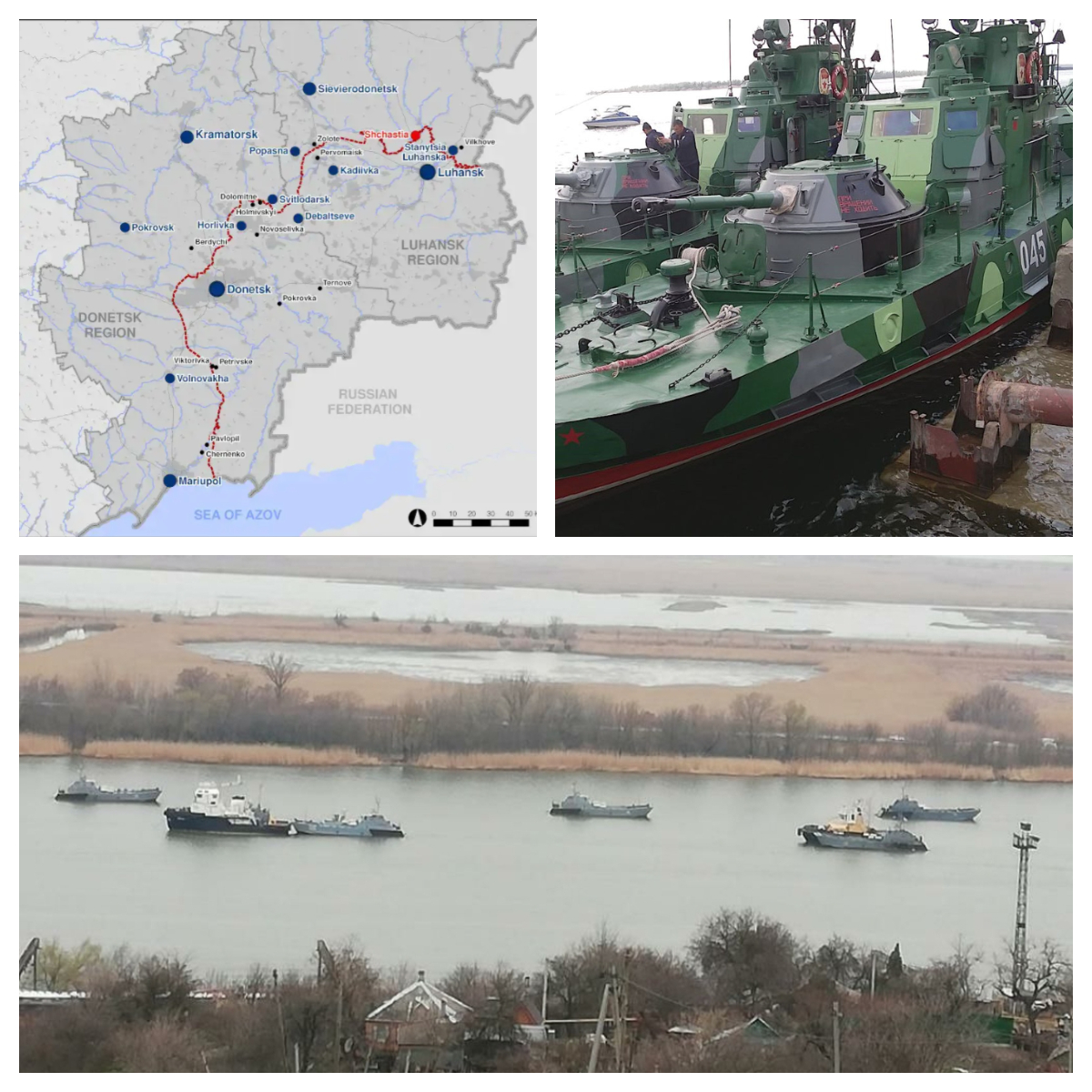 MILITARY USE OF INLAND WATERWAYS IN THE BLACK SEA REGION
MILITARY USE OF INLAND WATERWAYS IN THE BLACK SEA REGION
Teoman Ertuğrul TULUN 16.04.2021 -
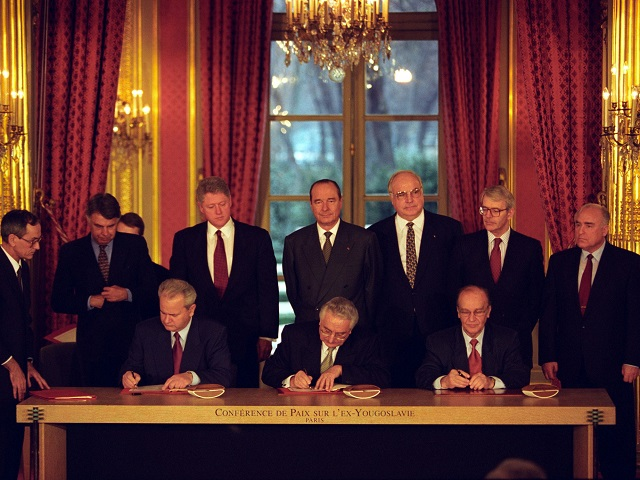 WHY SHOULD THE ROLE OF THE PEACE IMPLEMENTATION COUNCIL AND OHR CONTINUE IN BOSNIA AND HERZEGOVINA?
WHY SHOULD THE ROLE OF THE PEACE IMPLEMENTATION COUNCIL AND OHR CONTINUE IN BOSNIA AND HERZEGOVINA?
Teoman Ertuğrul TULUN 06.04.2021 -
 DISGUISED INITIATIVES ON NAGORNO-KARABAKH IN EUROPEAN PARLIAMENT
DISGUISED INITIATIVES ON NAGORNO-KARABAKH IN EUROPEAN PARLIAMENT
Teoman Ertuğrul TULUN 20.02.2018 -
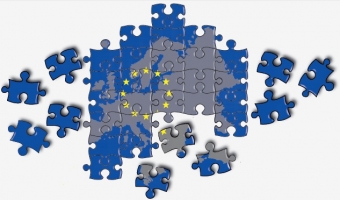 FROM A MISNOMER TO MISDESIGN: POSSIBLE EU CUL-DE-SAC IN BALKANS
FROM A MISNOMER TO MISDESIGN: POSSIBLE EU CUL-DE-SAC IN BALKANS
Teoman Ertuğrul TULUN 13.03.2018 -
 BREXIT: NEW PARADIGM SHIFT FOR GLOBALIZATION AND SIGNAL FOR NEW WORLD ORDER
BREXIT: NEW PARADIGM SHIFT FOR GLOBALIZATION AND SIGNAL FOR NEW WORLD ORDER
Teoman Ertuğrul TULUN 27.01.2017
-
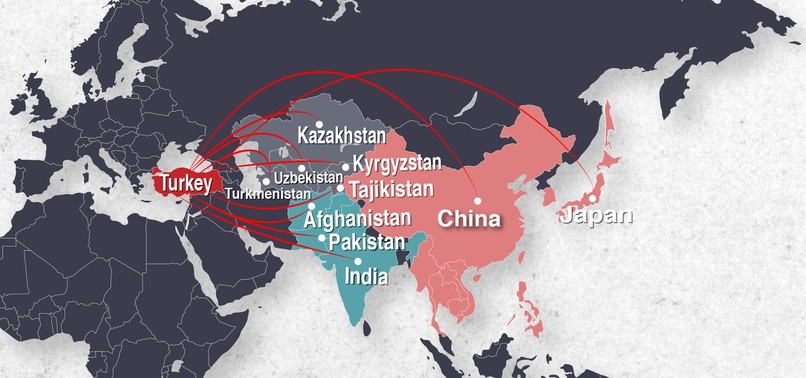 INTERNATIONAL COOPERATION IN THE RELATIONS BETWEEN TURKEY AND CENTRAL ASIA
INTERNATIONAL COOPERATION IN THE RELATIONS BETWEEN TURKEY AND CENTRAL ASIA
Tutku DİLAVER 17.02.2020 -
 THE EUROPEAN PARLIAMENT’S RESOLUTION REGARDING THE 2014 PROGRESS REPORT ON TURKEY
THE EUROPEAN PARLIAMENT’S RESOLUTION REGARDING THE 2014 PROGRESS REPORT ON TURKEY
Ali Murat TAŞKENT 17.06.2015 -
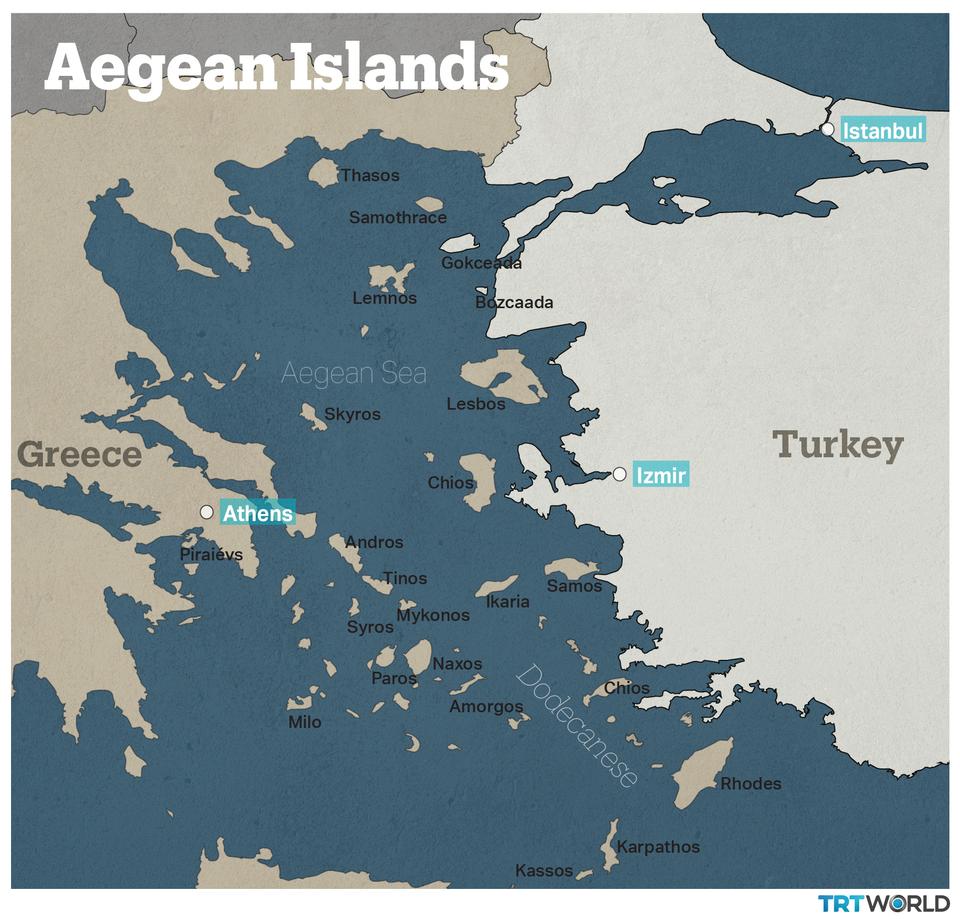 GREEK FOREIGN MINISTER DENDIAS CONCEDES THE DEMILITARIZED STATUS OF THE EASTERN AEGEAN ISLANDS AND THE DODECANESE
GREEK FOREIGN MINISTER DENDIAS CONCEDES THE DEMILITARIZED STATUS OF THE EASTERN AEGEAN ISLANDS AND THE DODECANESE
Teoman Ertuğrul TULUN 14.03.2022 -
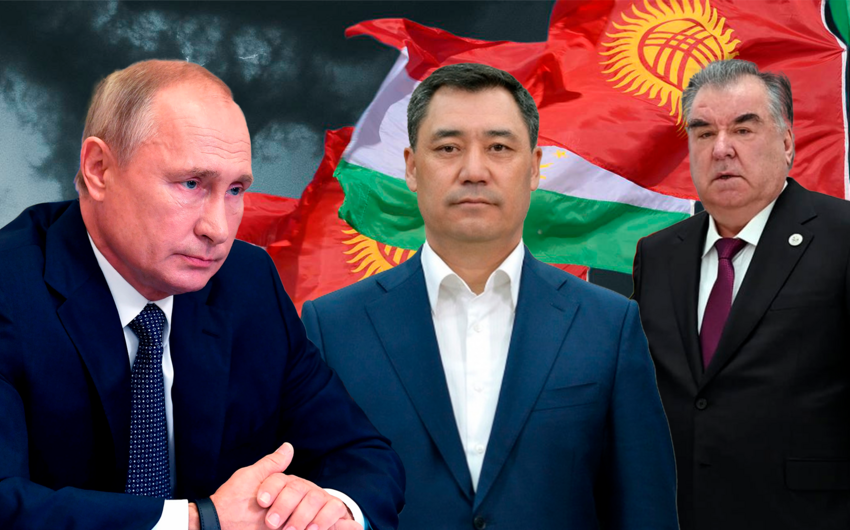 MORE THAN A LOCAL CONFLICT: THE KYRGYZSTAN-TAJIKISTAN BORDER DISPUTE
MORE THAN A LOCAL CONFLICT: THE KYRGYZSTAN-TAJIKISTAN BORDER DISPUTE
Gülperi GÜNGÖR 10.02.2023 -
D.L. PHILLIPS’S DIPLOMATIC HISTORY OF THE TURKEY-ARMENIA PROTOCOLS (FULL TEXT)
Ömer Engin LÜTEM 02.04.2012
-
25.01.2016
THE ARMENIAN QUESTION - BASIC KNOWLEDGE AND DOCUMENTATION -
12.06.2024
THE TRUTH WILL OUT -
27.03.2023
RADİKAL ERMENİ UNSURLARCA GERÇEKLEŞTİRİLEN MEZALİMLER VE VANDALİZM -
17.03.2023
PATRIOTISM PERVERTED -
23.02.2023
MEN ARE LIKE THAT -
03.02.2023
BAKÜ-TİFLİS-CEYHAN BORU HATTININ YAŞANAN TARİHİ -
16.12.2022
INTERNATIONAL SCHOLARS ON THE EVENTS OF 1915 -
07.12.2022
FAKE PHOTOS AND THE ARMENIAN PROPAGANDA -
07.12.2022
ERMENİ PROPAGANDASI VE SAHTE RESİMLER -
01.01.2022
A Letter From Japan - Strategically Mum: The Silence of the Armenians -
01.01.2022
Japonya'dan Bir Mektup - Stratejik Suskunluk: Ermenilerin Sessizliği -
03.06.2020
Anastas Mikoyan: Confessions of an Armenian Bolshevik -
08.04.2020
Sovyet Sonrası Ukrayna’da Devlet, Toplum ve Siyaset - Değişen Dinamikler, Dönüşen Kimlikler -
12.06.2018
Ermeni Sorunuyla İlgili İngiliz Belgeleri (1912-1923) - British Documents on Armenian Question (1912-1923) -
02.12.2016
Turkish-Russian Academics: A Historical Study on the Caucasus -
01.07.2016
Gürcistan'daki Müslüman Topluluklar: Azınlık Hakları, Kimlik, Siyaset -
10.03.2016
Armenian Diaspora: Diaspora, State and the Imagination of the Republic of Armenia -
24.01.2016
ERMENİ SORUNU - TEMEL BİLGİ VE BELGELER (2. BASKI)
-
AVİM Conference Hall 24.01.2023
CONFERENCE TITLED “HUNGARY’S PERSPECTIVES ON THE TURKIC WORLD"









